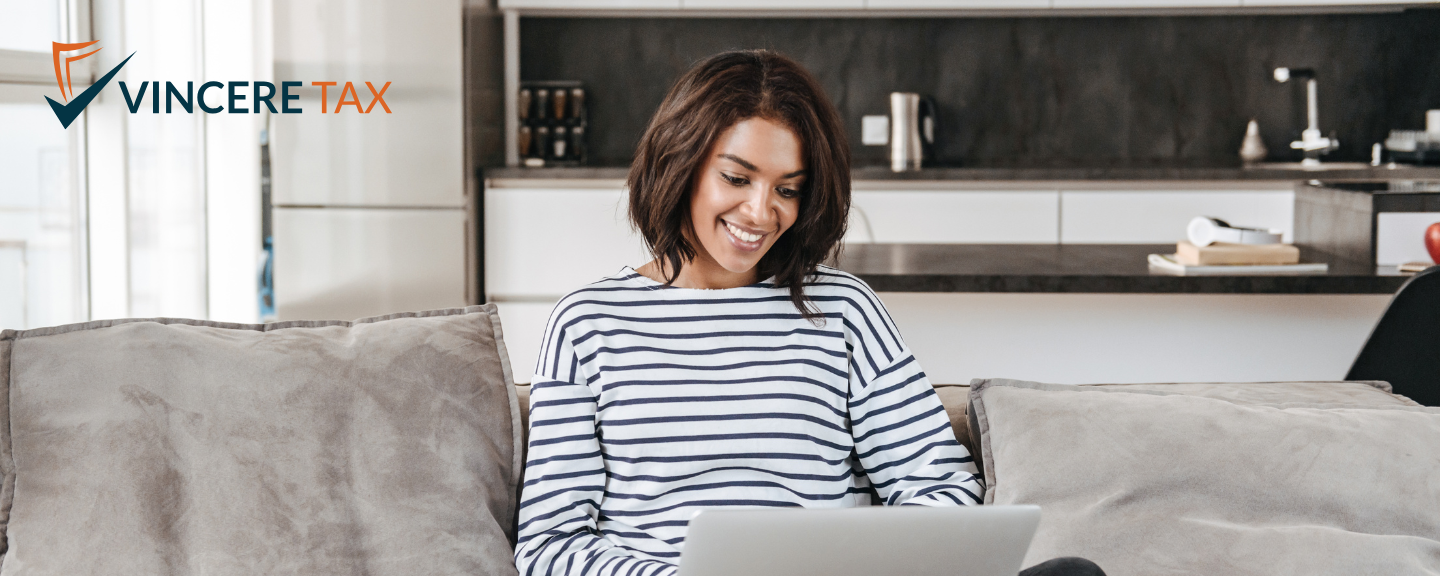Explore the complexities of rental income taxation in this insightful article.
rEAD MORE.png)

Rental income can be a significant source of revenue for many individuals and businesses alike. However, it also comes with its own set of tax implications that can be confusing if you aren't well-informed. This article aims to clarify the basics of rental income, its tax implications, and the reporting process. We’ll also address some common misconceptions about rental income and taxes while offering guidance on navigating the complexities that may arise.
Before diving into the tax implications, it's essential to understand what rental income is and where it comes from. Knowing these fundamental aspects can help demystify the more complex taxation issues that follow.

Rental income is typically defined as the money earned from renting out property or equipment. This includes residential rental properties such as apartments and houses, and can also extend to commercial properties like office spaces and retail buildings.
📌 Essentially, if someone pays you for the right to use your property, that income generally qualifies as rental income.
In addition to the basic amounts received, rental income can include additional payments made by tenants, such as security deposits, application fees, and fees for services like cleaning or maintenance. However, it's crucial to consider the context – for example, if you retain a security deposit until the lease ends, it may not be taxable until you either keep it or apply it towards damages. Understanding these nuances can help landlords navigate the complexities of rental agreements and ensure compliance with local laws.
➡️ IRS - Publication 527: Residential Rental Property
There are multiple sources from which rental income can derive. These can include, but are not limited to:
Understanding these sources is pivotal, as different types of rental income could have varied tax treatments. For instance, vacation rentals may be subject to different regulations and tax rates compared to long-term residential leases. Whether you are a casual landlord renting out a spare room or a seasoned real estate investor, recognizing the source can help prepare you for tax obligations. Additionally, the rise of platforms like Airbnb and Vrbo has transformed the landscape of short-term rentals, making it easier for homeowners to monetize their properties while also introducing new challenges regarding local zoning laws and tax compliance.
Moreover, the diversification of rental income sources can provide financial stability. For example, a property owner who invests in both residential and commercial real estate may find that the income from one source can help offset fluctuations in another. This strategy not only mitigates risk but also allows landlords to capitalize on varying market demands. As the rental market continues to evolve, staying informed about trends and changes in tenant preferences can further enhance income potential and ensure a more robust investment portfolio.
Now that you have a solid grasp of what rental income is, it’s time to delve into the tax implications. Many individuals find this facet particularly perplexing, but a clear picture can ease your concerns.
Rental income is generally considered ordinary income and is subject to federal income tax, as well as any applicable state and local taxes. Therefore, as a property owner, it is crucial to ensure that you accurately report any income generated from your rental activities to avoid trouble with the IRS.
It's worth noting that net rental income—how much you earn after deducting expenses related to managing and maintaining your property—is what you will ultimately be taxed on.
🏡 For instance, if you earn $30,000 in rental income but spend $10,000 on repairs, property management, or advertising, you are only taxed on $20,000.
As mentioned, there are various expenses associated with maintaining rental properties that can be deducted from your rental income. Common deductible expenses include:
Keep meticulous records of all expenses to maximize your deductions. Proper documentation can lead to significant tax savings, allowing you to retain more profits from your rental business.
In addition to the standard deductions, landlords should also be aware of the potential for depreciation, which allows you to recover the cost of your property over time. This non-cash deduction can significantly reduce your taxable income, making it a powerful tool in tax planning. For residential properties, the IRS typically allows a depreciation period of 27.5 years, which means you can deduct a portion of the property's value each year. Understanding how to calculate and apply depreciation can be a game-changer for your overall tax strategy.
Moreover, if you decide to sell your rental property, the tax implications can become even more complex. You may be subject to capital gains tax on the profit from the sale, but you can also benefit from 1031 exchanges, which allow you to defer paying taxes on the gain if you reinvest in a similar property. This strategy can be particularly advantageous for long-term investors looking to grow their real estate portfolio without incurring immediate tax liabilities. Keeping abreast of these regulations and potential strategies can help you navigate the intricate landscape of rental income taxation more effectively.
As a rental property owner, you’ll be required to report your rental income on your tax return. But when is the best time to do so, and how do you handle the specifics?

You must report rental income in the year it is earned, even if you haven't yet received the full payment. As an example, if a tenant pays you a portion of the rent in December but the entire rent was for January, you still need to report that income during the year it was earned.
It's also important to stay on top of your reporting obligations. If you fail to report rental income, the IRS has systems in place to catch discrepancies. This oversight could lead to fines, interest, and penalties that could have otherwise been avoided. Additionally, keeping accurate records of all rental transactions can help you avoid potential issues with the IRS. Consider maintaining a detailed ledger of rental payments, including dates received and amounts, as well as any correspondence with tenants regarding payment terms.
On your tax return, rental income is typically reported on Schedule E (Form 1040), where you would list your rental income along with the associated expenses. If you have multiple rental properties, you will need to fill out a separate Schedule E for each property.
In some cases, if you qualify as a real estate professional, your rental income may be treated differently, as you may have the ability to deduct losses against ordinary income. Understanding these nuances is vital to optimizing your tax return. Furthermore, it's essential to familiarize yourself with what constitutes deductible expenses. These can include property management fees, maintenance costs, and even depreciation on the property itself. By meticulously documenting these expenses, you can potentially lower your taxable income, making it crucial to keep receipts and invoices organized throughout the year.
There are several misunderstandings that people often have regarding rental income and taxation, causing unnecessary confusion and anxiety. Clearing these misconceptions can pave the way for a more informed rental experience.

One of the most prevalent myths is that rental income is tax-free. On the contrary, all rental income is taxable, and property owners must report it appropriately. Failure to do so can trigger audits and hefty penalties from the IRS.
Remember, while some landlords may believe they can avoid taxation entirely by referring to their property as a "hobby," the IRS does not take such claims lightly. Ensure you stay informed and compliant regarding your tax obligations. Additionally, it’s essential to keep meticulous records of all rental income received, as well as any associated expenses. This diligence not only helps in accurate reporting but also provides a solid defense in case of an audit. Many landlords find it beneficial to consult with a tax professional who specializes in real estate to navigate the complexities of rental income taxation effectively.
Another common misconception is that any expense associated with rental properties is deductible. However, the IRS has specific categories of expenses that qualify for deductions, and not all costs will meet these criteria.
For instance, while repairs and maintenance can typically be deducted, improvements that add value to the property may need to be capitalized and depreciated over time. Understanding these distinctions will help safeguard your finances and minimize tax liabilities. Moreover, it's important to differentiate between personal and rental expenses. If you use a portion of your home for rental purposes, only the expenses related to that portion can be deducted. Keeping detailed records of how the property is used can be invaluable in ensuring that you maximize your deductions while remaining compliant with tax regulations.
In conclusion, the landscape of rental income and taxation can seem daunting. However, with the right knowledge and resources, you can navigate this complexity more effectively.
The best way to ensure compliance and optimize your tax strategy is by seeking advice from a qualified tax professional. They can not only provide you with personalized guidance based on your unique financial situation but also keep you updated on tax law changes that might impact your rental operations.
Investing in professional assistance can lead to long-term benefits, often realizing tax savings that far outweigh the cost of their services. Additionally, a tax professional can help you identify potential deductions you may not be aware of, such as depreciation on your property, repairs, and even travel expenses related to managing your rental. This comprehensive approach can significantly enhance your overall profitability.
The world of tax laws is ever-evolving, with new regulations frequently coming to light. Staying informed about changes in tax legislation can help you avoid pitfalls and take full advantage of available deductions and credits. Subscribing to financial newsletters, attending workshops, or joining real estate investment groups can offer valuable insights into navigating these changes.
Moreover, engaging with online forums and communities can provide real-time discussions about tax strategies and experiences from fellow landlords. These platforms often highlight common challenges and innovative solutions, enriching your understanding of the rental market. By being proactive and knowledgeable, you can not only streamline your rental operations but also ensure greater financial security and peace of mind.
Being audited is comparable to being struck by lightning. You don't want to practice pole vaulting in a thunderstorm just because it's unlikely. Making sure your books are accurate and your taxes are filed on time is one of the best ways to keep your head down during tax season. Check out Vincere's take on tax season!

This post is just for informational purposes and is not meant to be legal, business, or tax advice. Regarding the matters discussed in this post, each individual should consult his or her own attorney, business advisor, or tax advisor. Vincere accepts no responsibility for actions taken in reliance on the information contained in this document.
Copyright © 2025 Vincere Tax| All Rights Reserved
Privacy Policy